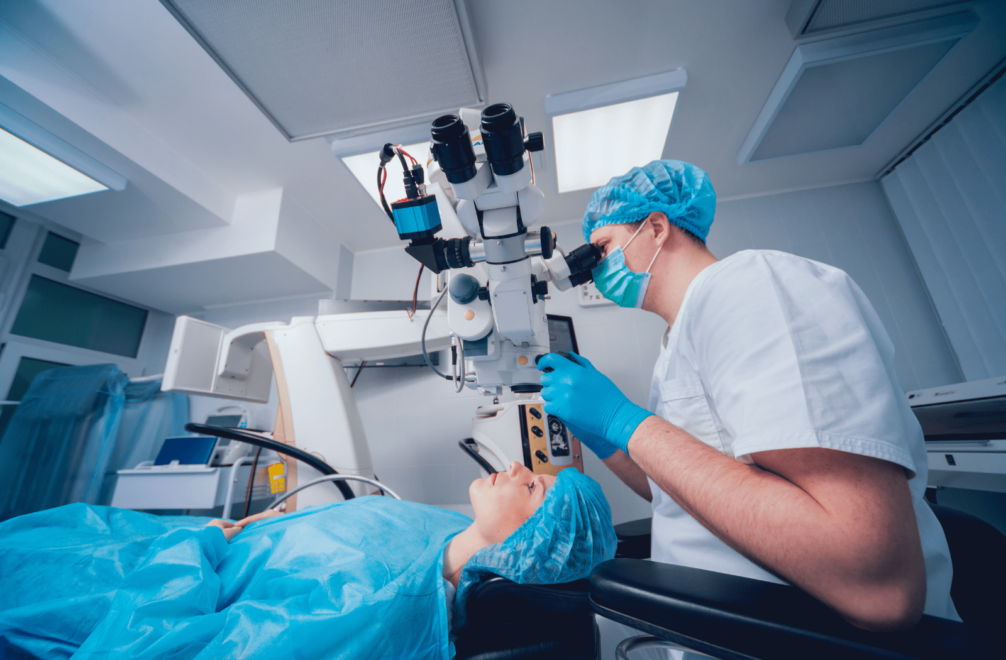
Your Guide to Cataract Surgery: Questions You’re Afraid to Ask
For many, the thought of cataract surgery stirs up a mix of hope and hesitation. On one hand, there’s the promise of seeing clearly again—of reading a book without squinting or driving without glare. On the other, there’s worry: What will it feel like? What if something goes wrong? These thoughts are natural. And if you’ve been carrying quiet questions, you’re not alone.
As an eye doctor, I’ve sat across from countless patients—some nervous, some hopeful, most unsure of what to expect. This guide is for you. Not the one with a medical background or memorized anatomy charts—but the real person who simply wants to see better without feeling overwhelmed by big words or cold explanations.
Let’s walk through what life after cataract removal really looks like—day by day, week by week. And yes, we’ll answer those unspoken questions too.
What Is Cataract Removal, Really?
Before we dive into recovery, it helps to understand what this surgery actually is.
A cataract is a clouding of the lens in your eye. It happens slowly over time, often making your vision blurry, dim, or overly sensitive to light. During surgery, the cloudy lens is removed and replaced with a clear artificial one. The entire procedure usually takes about 15 to 30 minutes—and you’re awake the whole time (but don’t worry, you won’t feel pain).
Week 1: The First Few Days
What to Expect
You’ve just had your cataract removed, and the relief is real. But so are the questions.
It’s common to feel mild discomfort—like your eye is gritty or slightly itchy. You might also notice light sensitivity, some watering, or blurry vision. These are all part of the healing process.
See more: Best CPAP Machine Australia: Our Top Picks for Your Sleep Needs
Why Eye Drops Matter
You’ll be given prescription drops to reduce inflammation and prevent infection. They’re not optional—think of them as a cast for your healing eye. Follow your doctor’s instructions closely and set reminders if needed.
The First Check-In
Your doctor will usually want to see you within 24–48 hours. This isn’t just routine—it’s to make sure everything’s going smoothly and to answer your questions in person.
Pro Tips for Healing:
- Don’t rub your eye (yes, it’s hard to resist)
- Wear your protective shield while sleeping
- Avoid heavy lifting or bending over
- Rest as much as your body asks for
Week 2: Adjusting to Clearer Vision
This is when the magic begins.
You may wake up and realize you can read the clock without squinting. Colors might seem more vibrant. The fog that used to sit in your line of sight? It’s lifting.

Returning to Normal Life (Slowly)
Light activities like reading, watching TV, or walking around the house are usually fine now. Just avoid anything strenuous or dusty. Most people feel ready to resume hobbies like knitting, light gardening, or crossword puzzles.
How You Might Feel
Emotionally, this can be a beautiful week. There’s a sense of wonder—“I forgot the sky was this blue!” But also moments of uncertainty—“Is this how it’s supposed to look?” Don’t worry. Vision often comes into focus gradually. Celebrate the small wins.
Week 3: Gaining Confidence
Your vision should be noticeably clearer now. Most patients say the glare from headlights has eased and reading labels or seeing faces is much easier.
Is Driving Okay?
Many people get cleared to drive around this time—if the vision in both eyes is strong enough. But don’t rush. Your doctor will let you know when it’s safe.
Social Life Returns
Going to lunch with friends, walking to the store, or even returning to work (if applicable) often resumes during this stage. Just stay mindful of your surroundings and avoid overly bright or dusty environments.
Still a Little Discomfort?
Some patients notice mild dryness or a “foreign body” sensation in the eye. This is normal. Use lubricating drops if recommended and speak with your doctor if it gets worse.
Week 4: Seeing the World Differently
By now, your vision is stabilizing.
The world may genuinely look different—clearer, brighter, more colorful. You’re not imagining it. Cataracts tend to mute colors and brightness over time, so this feels like lifting the veil.
Will I Still Need Glasses?
Some people can toss them altogether after surgery, while others may only need readers. Your eye doctor will do a final post-op exam and let you know what’s needed.
This Is the “New Normal”
If you had one eye done, this might be the point to schedule surgery for the other. Many patients describe it as “getting the full picture” once both eyes are treated.
Real Talk: Questions You Might Be Afraid to Ask
“Can I rub my eye?”
Not yet. It’s tempting, especially if it feels dry or itchy, but rubbing can cause serious issues. Use artificial tears or gently press a clean tissue around the eye if needed.
“Will my vision keep improving?”
Most improvement happens in the first few weeks, but some people notice small changes for a few months. Your brain also needs time to adjust to the “new lens.”
“What if one eye feels different than the other?”
Very normal. Especially if only one has had surgery. Vision balance will improve over time—or once the second surgery is done.
“I’m scared something went wrong. How do I know if it’s serious?”
It’s okay to be nervous. Signs that something might be wrong include increasing pain, loss of vision, or a curtain-like shadow. If you notice these, call your doctor right away. It’s always better to ask than worry in silence.
Conclusion: You Deserve Clarity
Cataract surgery is one of the most common—and successful—procedures in the world. Still, it’s normal to feel unsure. You’re putting your trust in a team to help you see again. That’s no small thing.
But I promise you this: you are not alone. Ask the “weird” questions. Bring your fears to your appointments. And know that recovery is rarely perfect—but it’s almost always worth it.
Within a month, most patients are smiling through brighter mornings, clearer text messages, and sharper colors they hadn’t seen in years.
You’ve got this—and we’ve got you.


